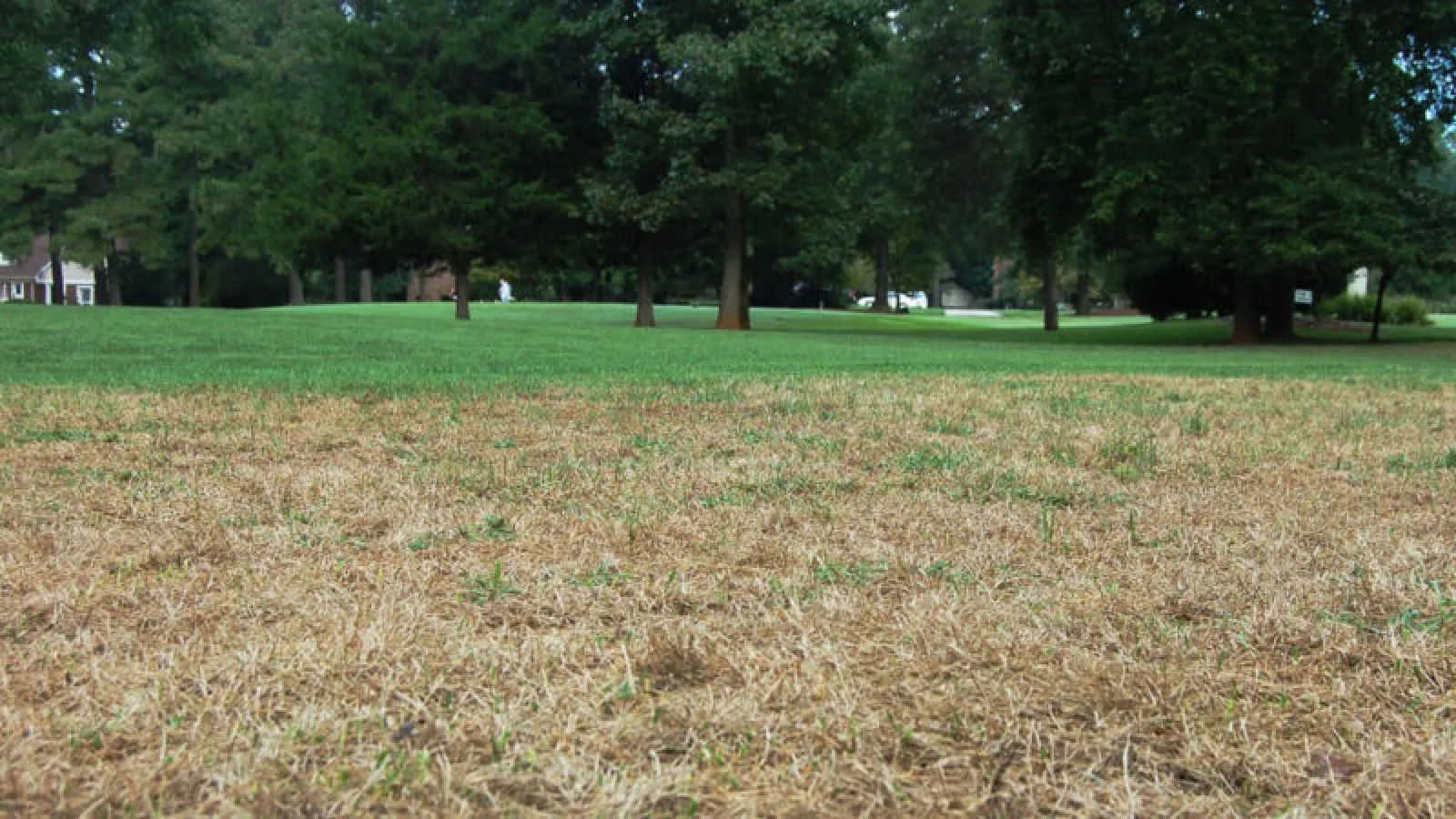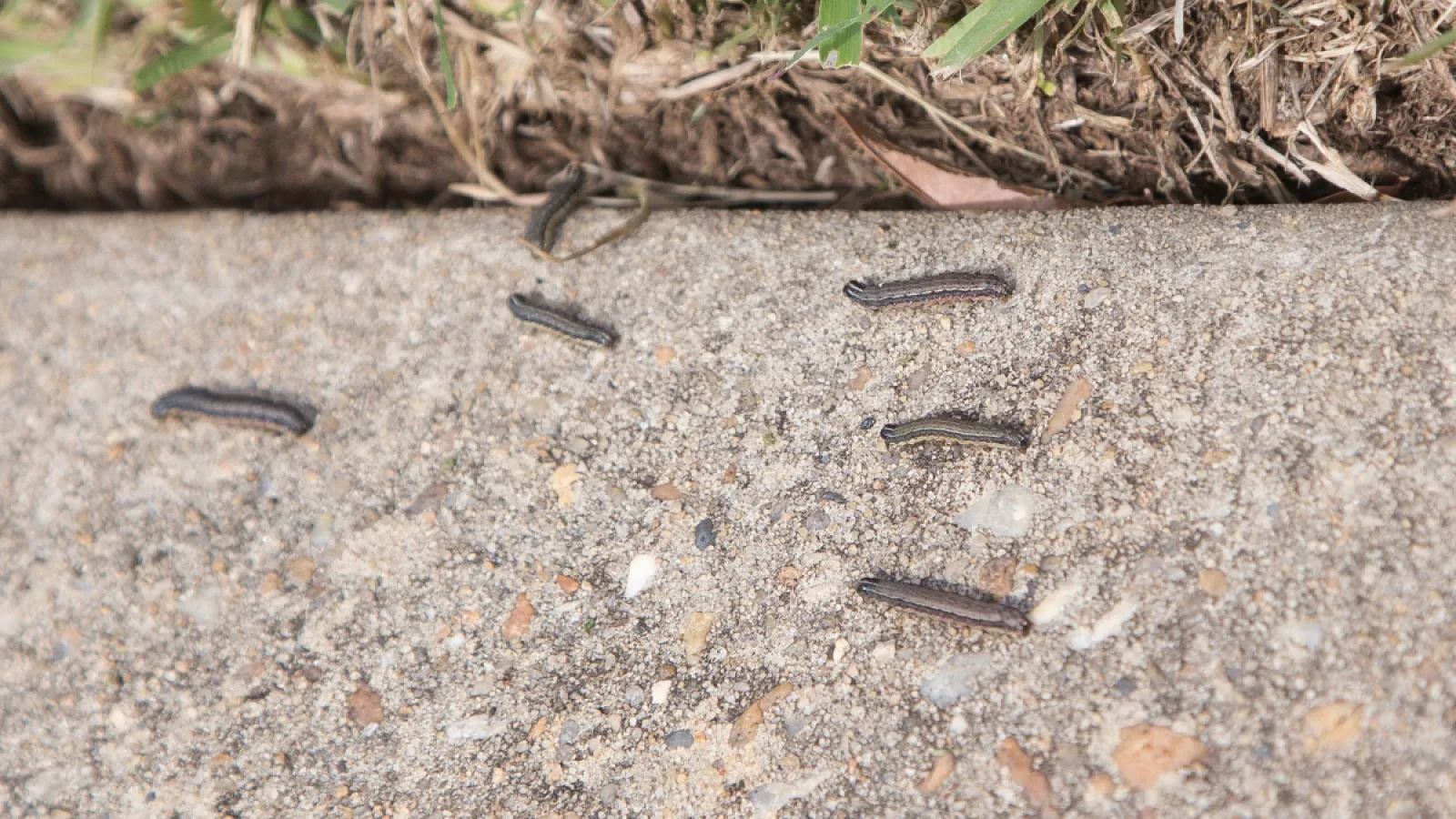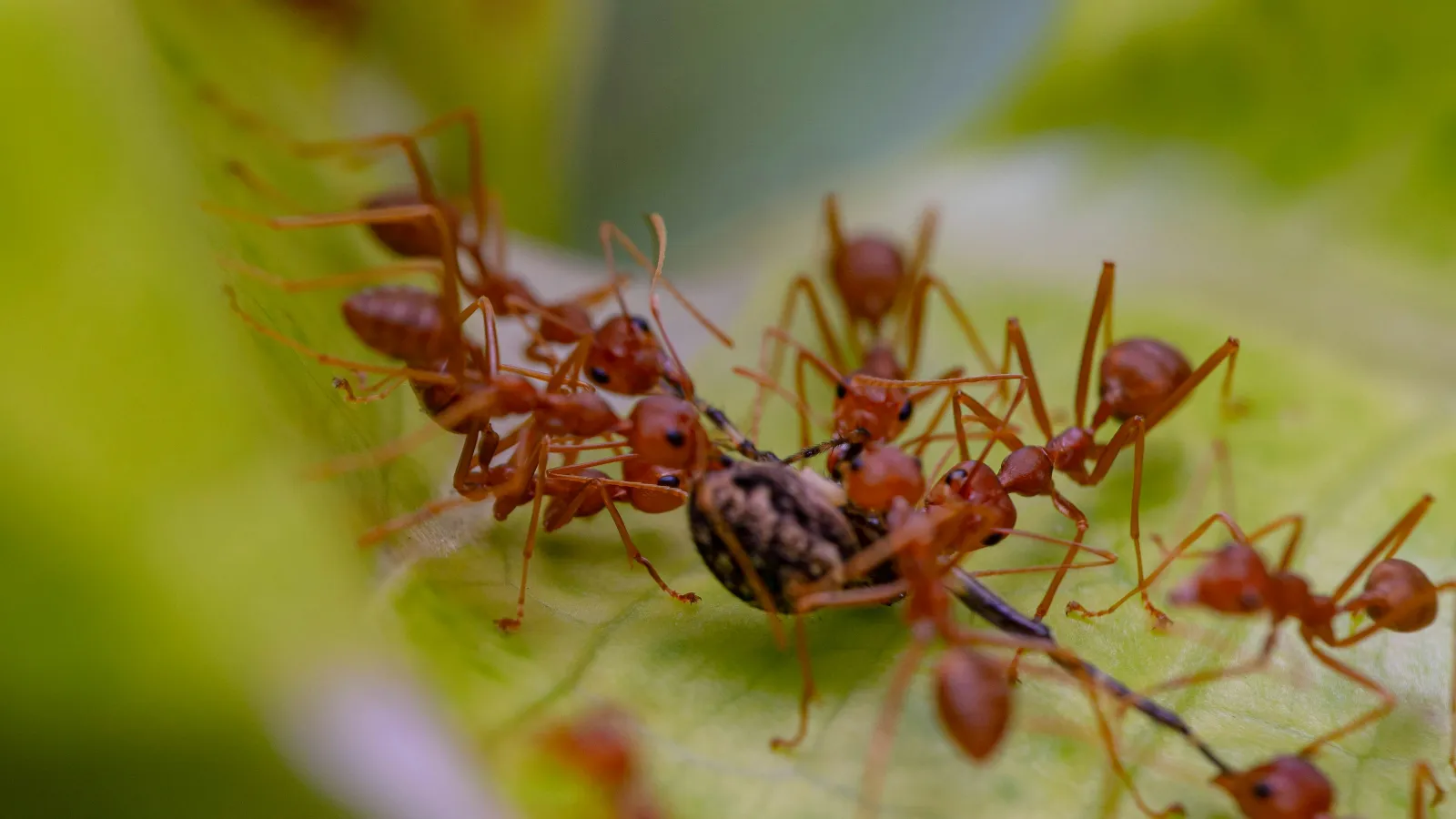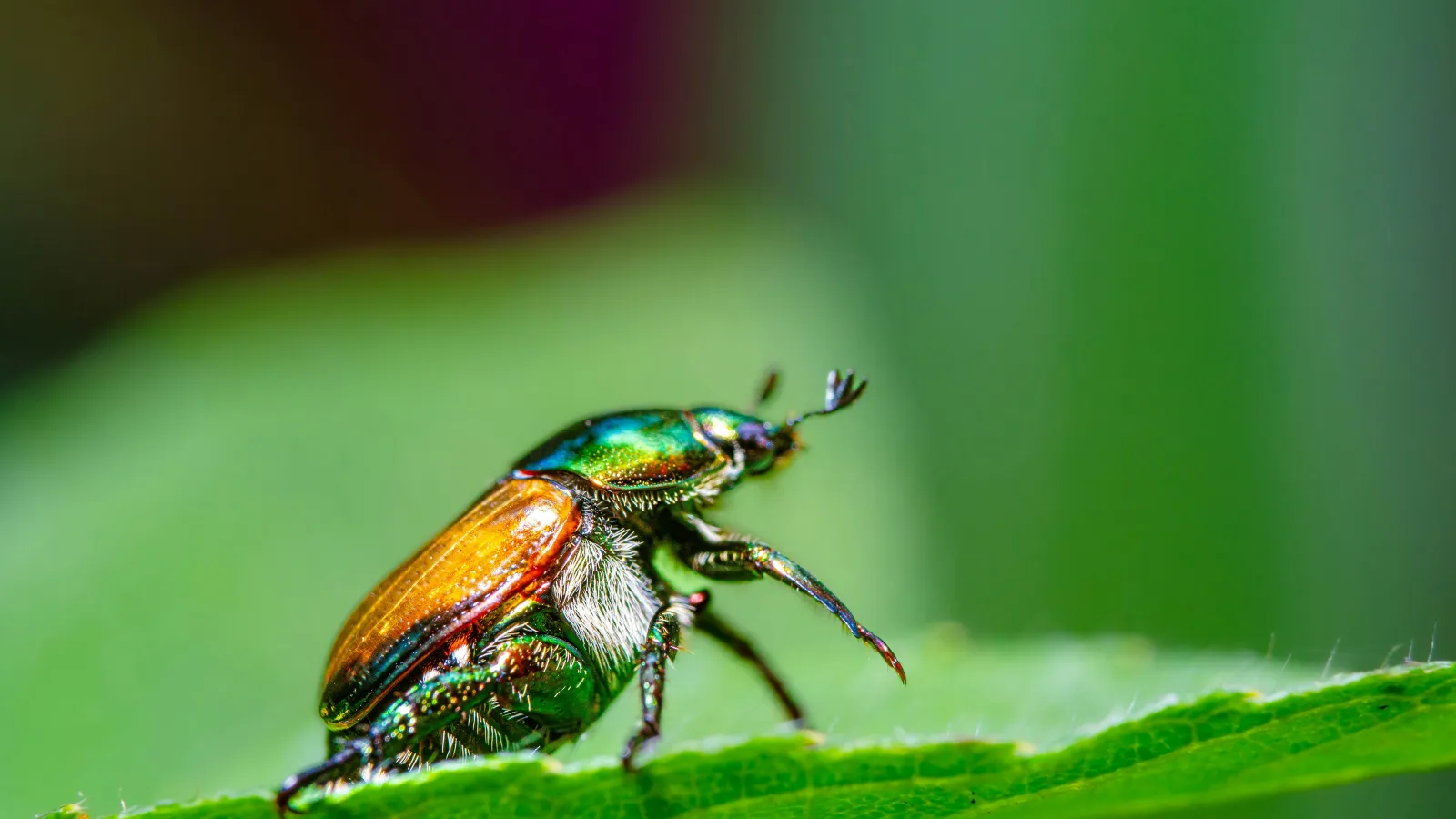
Fall Armyworms Are Marching In
The Fall Armyworm
Fall armyworms are the larvae of a small brownish-gray moth. Their scientific name is Spodoptera frugiperda. They plague many agricultural crops, but prefers grass including Bermuda, Fescue, Rye and Bluegrass. In the hot, dry weather, the moths and caterpillars really like lawns in the southeast. (Interestingly enough, first reported in 2016, they are also a major invasive pest to maize crops in Africa.)
The Life Cycle
The life cycle is 30 days during the summer, but 60 days in the spring and autumn. Female moths lay up to 2000 tiny eggs on the grass blades and they hatch a few days later. At first, the tiny caterpillars, approximately 1-1.5 inches long, are green. In large populations (in the thousands), they “march” across your lawn, devouring it as they move. As fall armyworms eat grass, their color changes to brown with white lines on the side and a reddish-brown head.
After the larvae feed on your lawn for 2-3 weeks, they dig into the soil and pupate. Within two weeks, a new population of moths emerge. After emerging from their pupal cases, the adult moth has a wingspan of approximately 1-1.5 inches long and can be difficult to distinguish from other moth species. At the moth stage, they are not a threat to your lawn.
Fall armyworms are very problematic in warm-season turfs such as Bermuda and St. Augustine in the southeast. Though Zoysia is a warm-season grass, they don’t like Zoysia.
Their Damage
Fall armyworms cause damage by consuming the foliage of Bermuda and Fescue grass. Because they cross the turf surface as a group, they create a noticeable line between damaged and undamaged turf grass. You may first notice their presence when a brown patch of grass gets larger each day. Or they can be very aggressive and you could find a lawn of no grass and only dirt after only a day or two. Fall armyworms are sneaky nuisances—they move only at night and hide in soil-lined burrows during the day.
The key to defeating the destruction from fall armyworms is to spot them early. It’s also important to have year-round lawn care to provide and curative care.
Contact A Professional
If you think you have a fall armyworm issue, contact Turf Masters Lawn Care.
Photo credit: University of Florida


